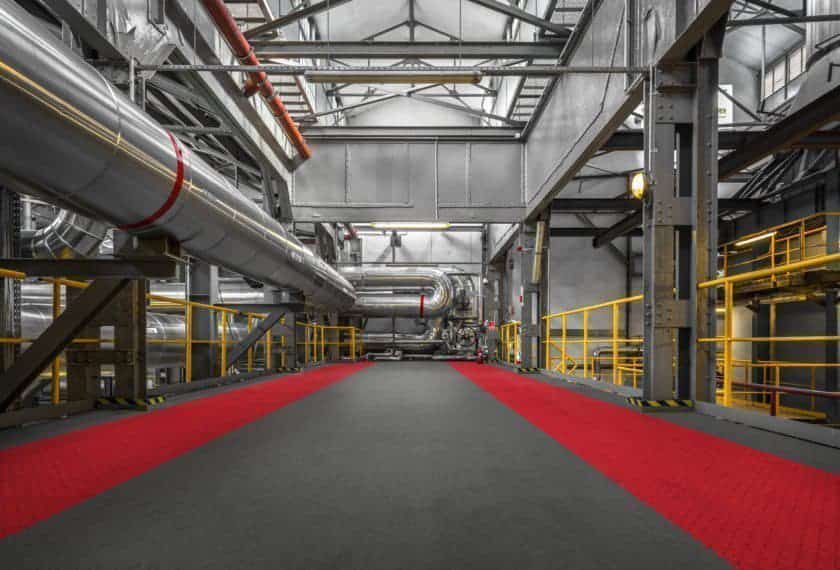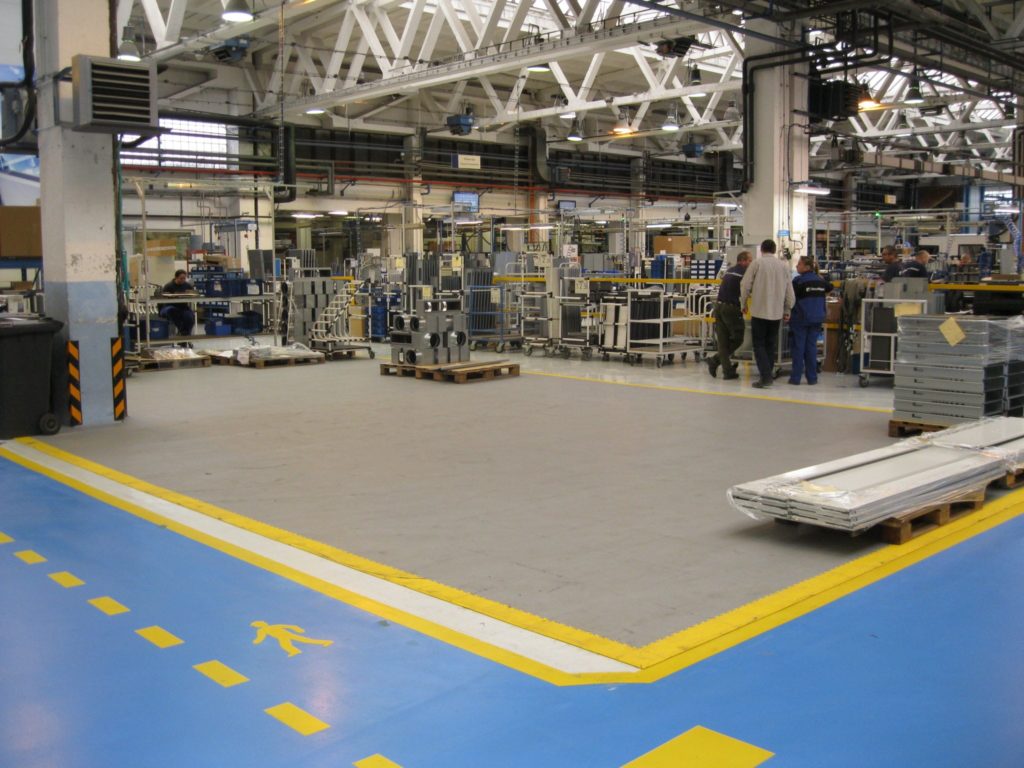Where does Fortelock excel in industrial use?
Whether your goal is to renovate or overhaul your damaged factory floors or build entirely new industrial halls, it’s really best to start with the floor.
In major companies, the choice of the floor usually falls on designers and architects, whereas for smaller buildings the owner alone chooses everything. Whether you belong to one group or the other, you are probably here to learn more about Fortelock PVC floor tiles. If it’s not enough to simply tell you that it makes a good industrial floor, then read on, we will explain what type of floor goes well in industry.
To begin with, it doesn’t matter whether PVC floor tiles are better suited as industrial flooring in engineering or production or as flooring in a warehouse. Justification can be found anywhere.
Interlocking tiles on any concrete floor
Let’s have a brief look, for example, at the possibilities of renovating concrete floors. There are a lot of them. Cement screeds are good for covering or repairing cracks and leveling the floor. Epoxy coatings are also often used. Another possible choice is Fortelock PVC tiles. They can be used on machine-polished concrete slabs or a concrete floor of any quality, and a more thorough preparation of the substrate is unnecessary. In the case of greater unevenness, however, it is recommended to level out the concrete foundation. You will find the necessary cement pours, self-leveling compounds, fillers or coatings on the official website of Fortemix.
Properties good for industry
PVC interlocking tiles can withstand all the pitfalls that await them in industrial plants. Its polymer structure is resistant to oils and acids. Water is no problem, because the locks are tight, and so only a minimum can get underneath them. This minimum, moreover, quickly evaporates thanks to a system of AirFlow channels. Thanks to a nonslip tread, the floor is not slippery (for either people or machines), and it belongs to the category of floor coverings with greater fire resistance. It can take the weight of a forklift truck – the model Fortelock Industry floor tiles is structurally designed so that the bottom side is full and therefore more durable.
Floor markings
In manufacturing plants, it is practical to color-distinguish working zones, aisles, forklift corridors, etc. This of course is done by using paint to make stripes and outline individual areas, but colored PVC floor tiles takes care of this by themselves. Fortelock interlocking tiles are produced in various colors that can be freely combined to create these patterns. In many cases, the floor can be made in the company’s colors, as the shades to choose from are really quite a lot. Unlike colored stripes, which gradually peel off, the color of the Fortelock tiles is here to stay.
Fast installation and by yourself
Price also plays a big role in choosing the right floor. In big manufacturing halls and warehouses, the differences between individual types of floor can range from a few thousand to tens of thousands. What could be interesting therefore is that installing a Fortelock floor can mean big savings. As already mentioned, it can be used on any concrete base, and mostly without glue. The tiles are simply pieced together and hold well thanks to their firm locks. One person can lay 30 m2 of these PVC interlocking tiles within one hour.
Cheap to replace if damaged
Even if a floor is the best it can be, it can always suffer damage. It’s enough, for example, to drop a sharp object on the floor. For this case, help is easy for PVC floor tiles. The tiles can be changed individually, and so the repair costs are an absolute minimum.
Price, quality, durability, and experience with the material. These are the main criteria to consider in choosing the right floor. Since Fortelock excels in all these areas, the time is right to think about it for your industrial projects.


